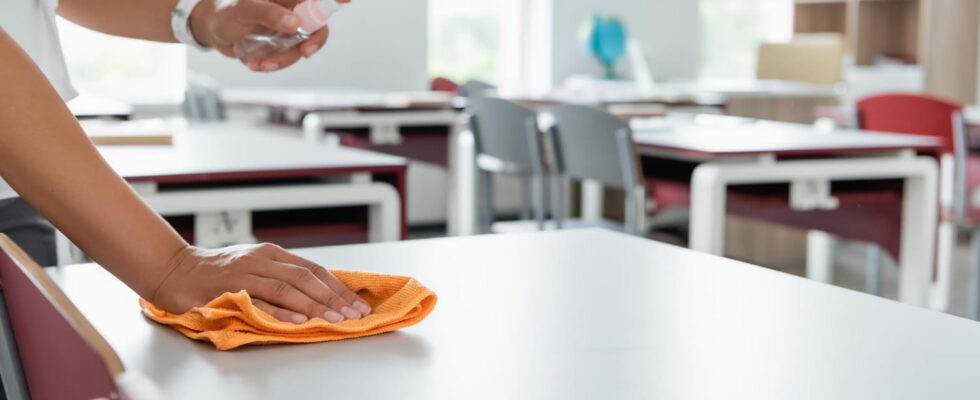Every day, millions of schoolchildren work on this task after their lessons.
Imagine if, in France, our schoolchildren had to clean their school after a long day of classes instead of going home. The idea would surely not appeal to either politicians or parents. And yet, in a particular country, it is a duty that is implemented from primary school to high school, and sometimes even from kindergarten. This concerns millions of students in public schools across the country.
Concretely, in these schools, there is no surface technician. It is the students themselves, boys and girls, who must ensure the maintenance and cleanliness of their premises. They sweep, mop, empty trash cans and maintain common areas every day of the week. Whether it’s classrooms, corridors and toilets. They usually do it in turns and in teams, in the evening after school or during their lunch break.
This tradition, which may surprise some, comes straight from Japan. It even has a name: gakko soji. Literally, this means “school cleaned by students”. And contrary to what one might think, it is not a punishment, far from it. This concept aims to instill values in young people such as responsibility, respect for shared places, living together, modesty, and, in a certain way also, discipline. It is an integral part of a Japanese student’s school curriculum. Learning about collective life is therefore as important as school subjects.
“It’s about continuing what is happening at home, where children participate from (age of) 3-4 years of household chores, from cooking to cleaning”, explained Yuya Yoshizawa, head of the Osaka Education Commission, in 2019 to our colleagues at New Obs. Furthermore, in Japan, there are practically no trash cans on the streets and in public places, and yet everything is clean. The Japanese, even the youngest, are used to taking their waste home and then throwing it in their trash. It is no coincidence that Japan is often among the cleanest countries in the world.
